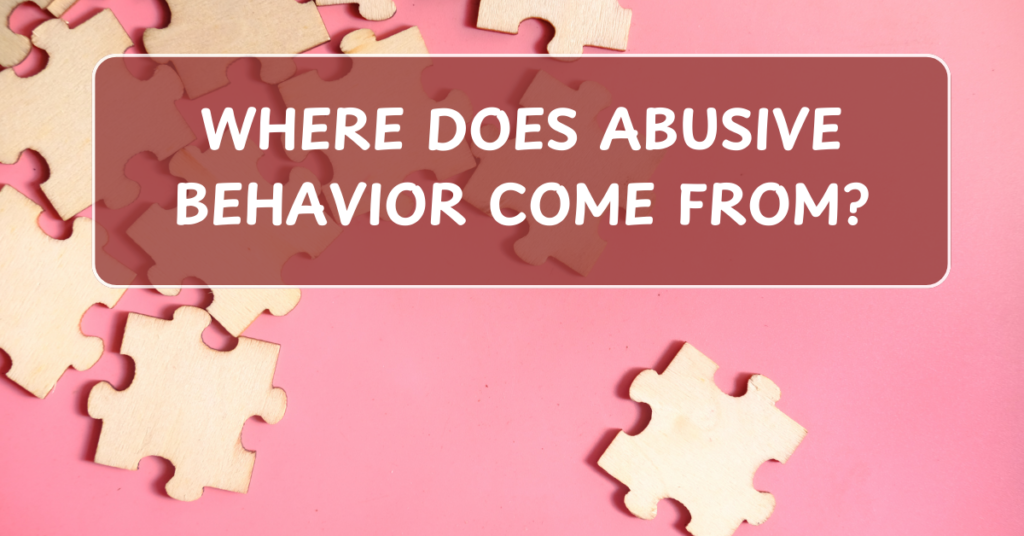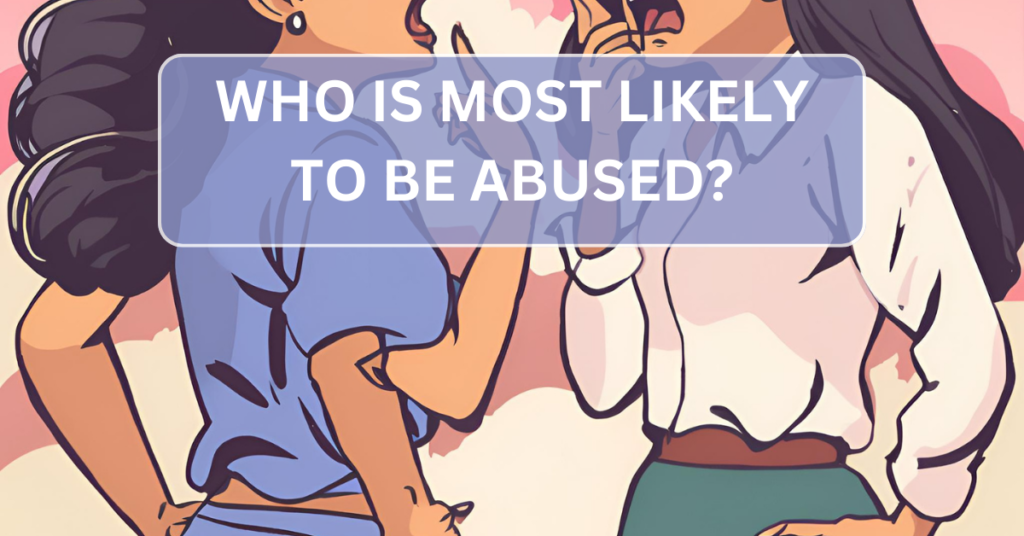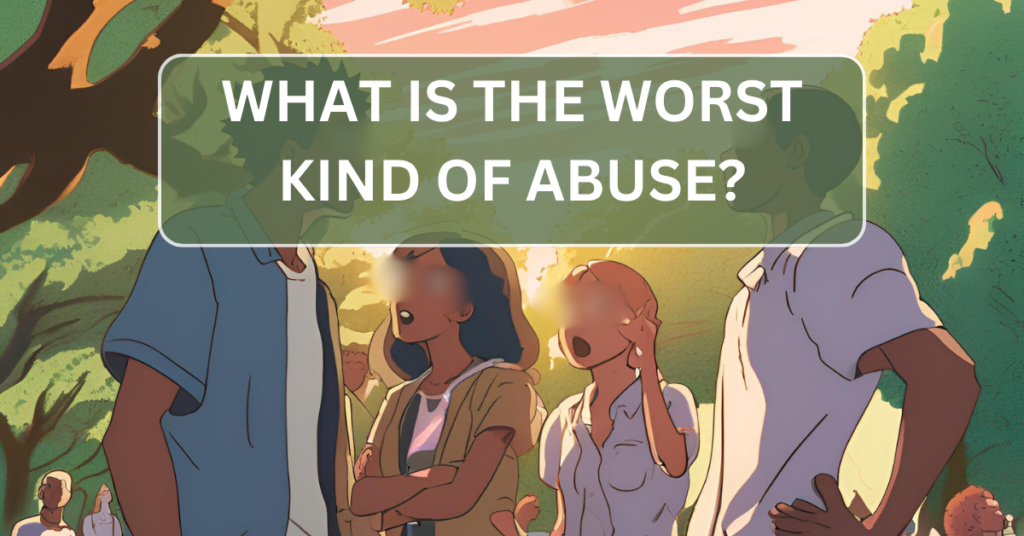
Abusive behavior is a complex issue that can stem from a variety of factors. While there is no single explanation for why someone becomes abusive, understanding the potential causes can help both victims and those at risk of engaging in abusive behavior to take steps toward prevention and healing. Abusive behavior can manifest in different forms, including physical, emotional, verbal, financial, and sexual abuse. Below are some key factors that may contribute to abusive behavior:
1. Childhood Trauma and Abuse
One of the most significant contributors to abusive behavior is a history of trauma or abuse during childhood. Individuals who have been exposed to physical, emotional, or sexual abuse at a young age may learn abusive behavior as a coping mechanism or as a model for how relationships are supposed to work.
- Learned Behavior: Children who grow up in abusive households may learn that aggression or control is acceptable in relationships. They may then perpetuate this cycle of abuse when they grow older.
- Attachment Issues: Abused children may also struggle with attachment issues, which can lead to difficulties forming healthy, trusting relationships in adulthood. This can result in patterns of control, manipulation, or violence.
2. Mental Health Issues
Mental health conditions, such as personality disorders, mood disorders, or anxiety, can sometimes contribute to abusive behavior. However, it’s essential to note that having a mental health condition does not inherently make someone abusive.
- Narcissistic Personality Disorder (NPD): People with NPD may display abusive behavior because they lack empathy and have an inflated sense of self-importance.
- Borderline Personality Disorder (BPD): Individuals with BPD may experience intense emotions and fear of abandonment, which can sometimes lead to controlling or aggressive behavior.
- Substance Abuse: Alcohol or drug abuse can lower inhibitions and increase the likelihood of violent or emotionally abusive actions.
While mental health conditions can play a role in abusive behavior, it’s essential to understand that mental illness does not excuse or justify abuse.
3. Power and Control
Abusive behavior is often rooted in a desire for power and control over another person. In many cases, abusers use intimidation, manipulation, or violence to maintain dominance in a relationship.
- Control Tactics: Abusers may isolate their victim from friends and family, restrict access to financial resources, or employ emotional manipulation to ensure they remain in control.
- Insecurity: Paradoxically, abusers may act out of deep insecurities. They may feel powerless in other areas of their life and attempt to regain control by exerting dominance over their partner or victim.
4. Societal and Cultural Factors
Society and culture can influence attitudes toward violence and control in relationships. In some cultures or communities, abusive behavior may be normalized or even encouraged.
- Socialization: People may grow up witnessing or being taught that aggressive behavior is a legitimate way to resolve conflict, making them more likely to engage in abusive actions.
- Media Influence: Movies, television shows, and social media can sometimes glamorize toxic relationships or portray unhealthy behaviors as acceptable, which may contribute to unhealthy patterns in real life.
5. Stress and Life Situations
Stressful life circumstances, such as financial strain, job loss, or relationship problems, can sometimes trigger abusive behavior. However, while stress can exacerbate existing tendencies, it does not justify abuse.
- Poor Coping Mechanisms: Individuals who lack healthy coping strategies may resort to anger or aggression when faced with difficulties.
- Frustration and Helplessness: Someone who feels trapped in a challenging situation might lash out in frustration. This can lead to verbal, emotional, or physical abuse toward others, especially if they feel powerless in their own life.
6. Substance Abuse and Alcohol
Drugs and alcohol can contribute significantly to abusive behavior. While substance abuse does not cause abuse directly, it can impair judgment and reduce inhibitions, making someone more likely to act out violently or aggressively.
- Increased Aggression: Alcohol and drugs, especially in large quantities, can lead to mood swings, aggression, and a loss of self-control.
- Escalation of Abuse: For individuals who have already exhibited controlling or violent behavior, substance use can amplify these tendencies and increase the severity of the abuse.
7. Entitlement
In some cases, abusive behavior stems from a sense of entitlement.
- Sense of Ownership: Abusers may feel a sense of ownership over their partner and may use abuse as a way to “claim” them or maintain control.
8. Lack of Emotional Regulation Skills
Many people who engage in abusive behavior have poor emotional regulation skills. This means they may struggle to manage their anger, frustration, or feelings of inadequacy.
- Outbursts of Rage: Rather than managing difficult emotions in a healthy way, an individual may resort to explosive outbursts, emotional manipulation, or physical violence as a way of coping.
- Difficulty with Conflict Resolution: Without healthy coping mechanisms, someone who lacks emotional control may view conflicts as threats to their authority or ego and react aggressively.
9. Dysfunctional Relationships and Socialization
Abusive behavior can also develop in relationships where there is a lack of healthy communication, mutual respect, or trust. People who grow up in dysfunctional environments may struggle to develop healthy interpersonal skills, leading them to engage in abusive behaviors as a form of communication.
- Conflict Patterns: If someone has never learned how to resolve conflicts peacefully, they may resort to intimidation, threats, or violence when disagreements arise.
- Chronic Tension: In long-term relationships with poor communication, abusive behavior can gradually emerge as a pattern of unhealthy interaction.
10. Personality and Character Traits
While not always the cause, certain personality traits may make a person more prone to abusive behavior. These can include:
- Lack of Empathy: Abusers may struggle to understand or care about the feelings of others. This can make it easier for them to inflict harm without remorse.
- Entitlement and Narcissism: People with narcissistic tendencies may feel entitled to treat others poorly and may use abusive behaviors to get what they want.
Conclusion
Abusive behavior is a multifaceted issue that can arise from various personal, societal, and environmental factors. Whether rooted in childhood trauma, mental health struggles, societal norms, or personal insecurities, abusive behavior is never justified. Recognizing the underlying causes is essential for preventing and addressing abuse. It’s important for both victims and those who engage in abusive behavior to seek help, whether through therapy, support groups, or other resources, in order to break the cycle and foster healthier, more respectful relationships.


